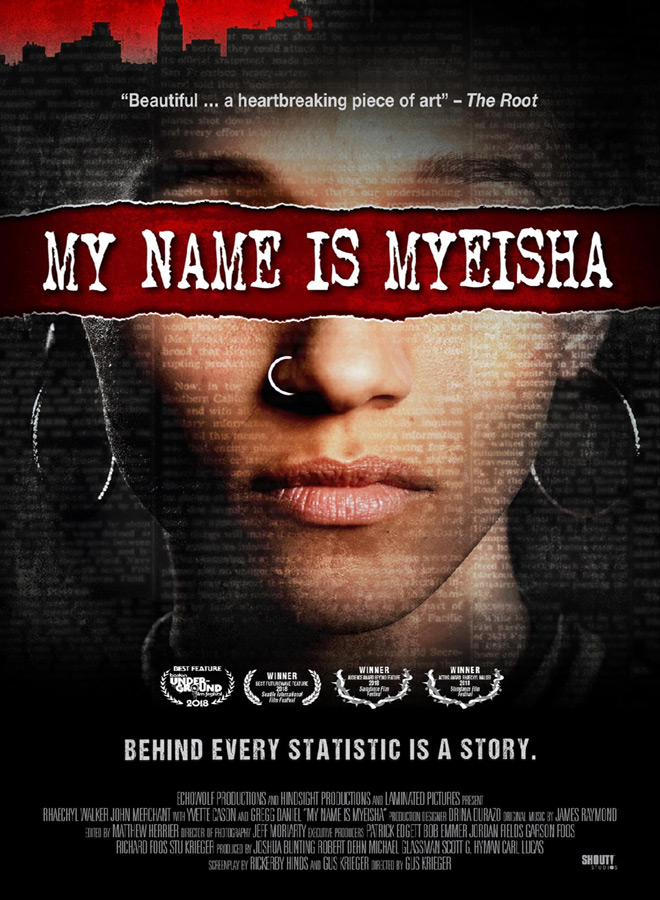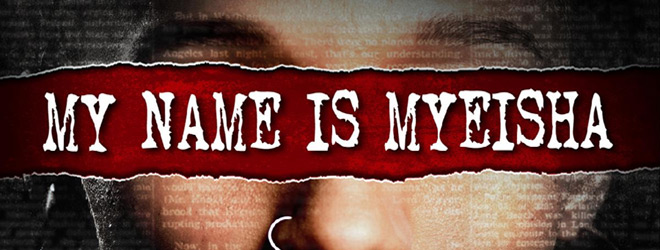Ready for a Musical? Probably not after last December’s Cats adaptation, but My Name is Myeisha comes from a grittier, sadder place than Andrew Lloyd-Webber’s stage romances. It is an adaptation of the Rickery Hinds (It’s Not for You 2019) stageplay Dreamscape, directed and written for the screen by Gus Krieger (Would You Rather 2012, The Binding 2016).
Set in 1998, it follows Myeisha Jackson (Rhaechyl Walker: Mirage at Zabul Province 2013, Ink & Rain 2018) through her life in California’s Inland Empire. She guides the audience through her mind and life through Hip-Hop tunes, spoken-word poetry and dance, all the way up to an encounter with the local police. Inspired by the real-life killing of teenager Tyisha Miller in 1998, it reflects upon this tragic event and multiple other instances of police brutality against the black community over the past 20+ years.
The film originally cropped up on June 21, 2018, earning itself awards at the Seattle International Film Festival, Slamdance Film Festival, and a nomination at the Champs-Élysées Film Festival. Now Shout Studios will be bringing it to select theaters, VOD and digital platforms on January 24, 2020 before it hits DVD and Blu-ray on January 28th.
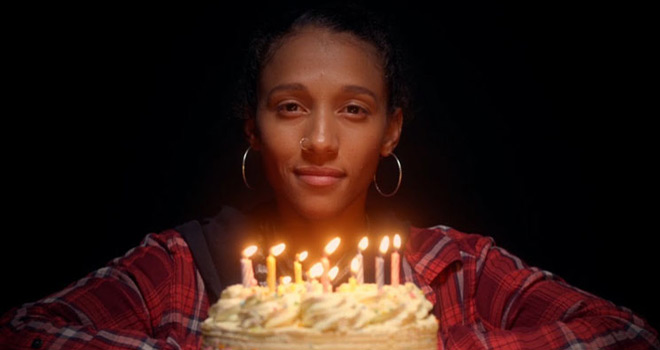
So, is the film worth catching once it crops up or does one need to be in a certain mood to watch it? After all, with a synopsis like that, it could be an Afro-American take on 2000’s crushingly depressing Musical Dancer in the Dark; Requiem for a Dreamscape, so to speak. Myeisha herself even straight-up tells the audience, “This isn’t going to be one of those feel-good shows.”
Still, it is not as full of doom as 2000’s Requiem for a Dream or other famously spirit-killing flicks. There are scenes of levity sprinkled here and there, whether it is in Myeisha’s interactions with her cousins Roni (Dominique Toney: Supergirl series, Family Reunion series) and Kai (Dee Dee Stephens: Class series, Induced Effect 2019), or her Ferris Bueller-esque poetic asides to the audience. There are even skits based on astrology and the holidays.
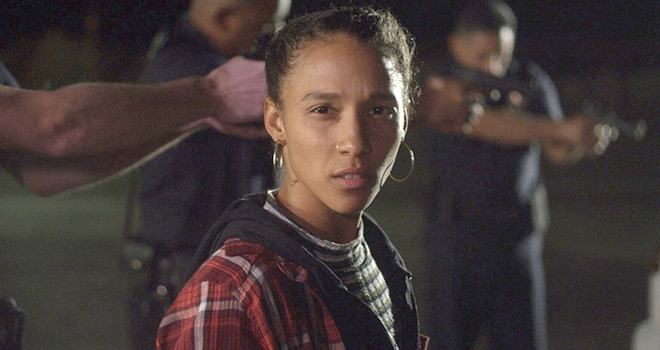
Even some of the tenser moments are peppered with rhymes and raps that disarm the audience yet do not dissipate the mood. For example, an early scene introduces the cops through one delivering a report as he recounts his actions, intercut with her cousins’ 911 call. Even as Myeisha throws in a playful rhyme based on her name, or musing on what things would be like if she had a certain degree of white privilege, that sense of dread remains. Like even if one went into it blind and did not catch Myeisha’s warning, the audience would still know things are going to hit the fan.
The delivery helps that, as Walker shifts into a series of switching moods and emotions with little sweat. The way her playful smiles shift into barely hidden contempt to fear and beyond come off as natural and smooth, maintaining energy and charm throughout. It almost feels effortless for her, like she just stepped onto the set and rolled off everything in one take.
Though any performance less than pristine would have made the film different, given it is almost a full 80+ minute spoken-and-sung soliloquy. Just a few other dialogue scenes and a backing performance by John ‘Faahz’ Merchant (Slamdance TV 2018), which also deserves kudos. He backs Walker up musically through some neat beatboxing, before dumping an ice bath of reality on proceedings through clinical report-style delivery. Walker brings Myeisha to life, while Merchant presses the opposite through the hard facts.
The presentation retains some of the film’s stage origins, usually through the interstitial scenes where Walker performs with backup dancers, Merchant, or with props in otherwise empty space. It peppers up the location scenes with a cornucopia of cinematic cuts, shots and tricks, which add plenty of style to the film. But they also add to the substance, usually in its switches from levity to starkness and vice-versa. There is even a nice, Tarantino-esque trunk’s-eye view to illustrate an otherwise innocent scene about car trouble. They are cut together well too, moving as smoothly as Walker’s performance.
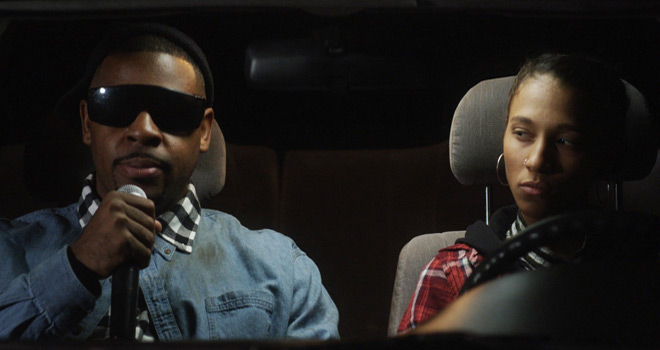
It almost sounds perfect, and it pretty much is – unless one is after a traditional Musical, perhaps. Its smooth flow between rhyming dialogue and brief musical breaks means one is unlikely to find a soundtrack album or karaoke listing. Or one could, but it would not be as powerful as the stage or film version – not unless it was the full feature-length deal. One can take chunks out of Musicals like Cats or Grease to get a taste for what they are like, however, with My Name is Myeisha, one takes it all or leaves it. Anything less than the full film (or play) is not enough.
Which makes this a definite recommendation. My Name is Myeisha does not crush the spirit yet it remains a stark picture. It shows the horror of police brutality through what it takes away- joy, charm, humor, relatable life experiences- rather than the act itself, which is not treated as any less awful through its inevitability. The acting, singing, rhyming, beatboxing and editing flow effortlessly, making the picture more bittersweet. In a simpler, less flowery way of putting it: My Name is Myeisha is great, go see it, because Cryptic Rock gives it 5 out of 5 stars.
